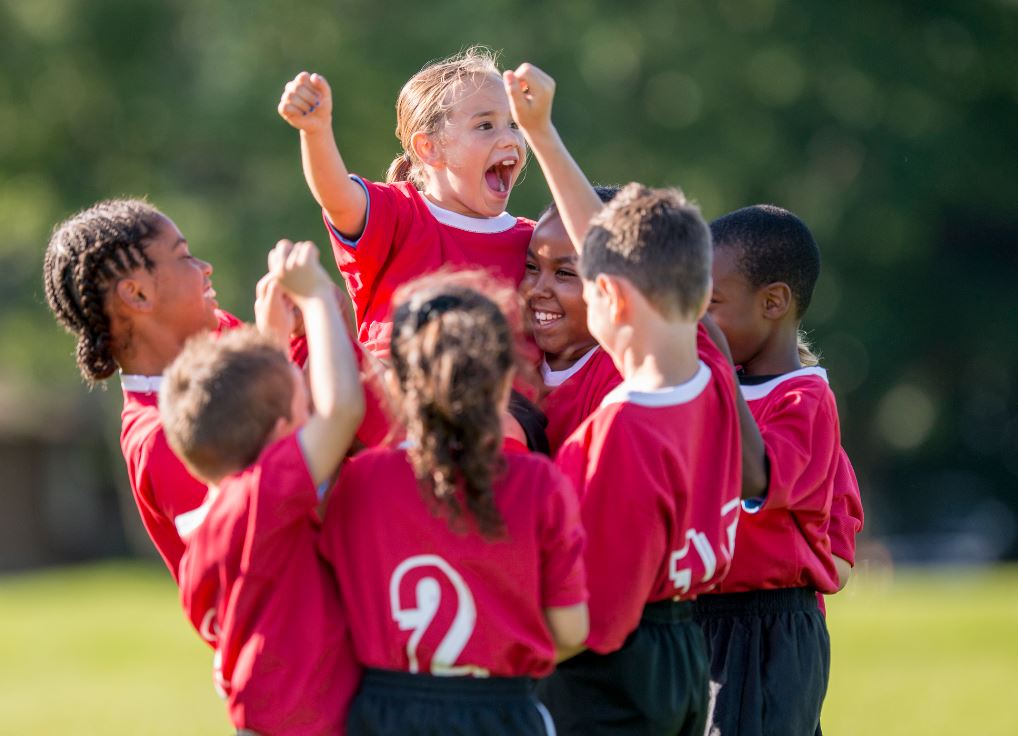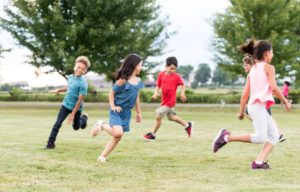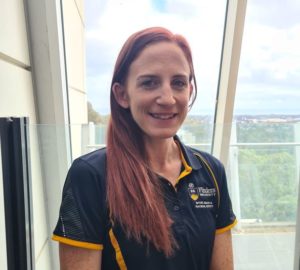
Parents should think twice before putting pre-schoolers into competitive sporting programs, say Flinders University experts who are concerned about sport participation levels throughout school years to young adulthood.

The warning follows extensive interviews with 16 parents of children aged between 3-5 years to evaluate the motives, beliefs and attitudes of parents engaging their children in organised competitive sports at a young age.
The 3 to 5 year old children regularly participated in a 11 sports ranging from modified forms of netball, soccer, basketball and cricket, to swimming lessons, dancing and gymnastics, with parents keen to set healthy lifestyle habits in their children from a young age.
Next to the benefits of developing motor competencies, social skills, positive self-efficacy, and increased psychological health and wellbeing, early participation can lead to injury, boredom or psychological burnout which also contributes to sporting dropout rates rising in mid-to-late childhood.
One previous study found children who participate before six years of age have an increased tendency to drop our of organised sport within a four-year period.
Broader social and cultural forces also play a part in the parents’ motivations and belief about the benefits and challenges of contemporary sports, says lead author Emilea Mysko, whose doctoral study surrounds children’s sport participation and parental role modelling.

“What this and other studies have found is that parents need to be well informed about the short and long-term benefits and risks of deciding to join a competitive sport, particularly at a young age,” says Ms Mysko.
“Parents and carers need to look past the social norms, sporting group and government sporting campaigns and consider whether to enrol their child into an organised sports program.
“At a higher level, the youth sport policy-makers need to review the current youth sport model of participation to ensure that those who start sport stay in sport – which doesn’t happen a lot of the time across the childhood development span.”
Co-author Associate Professor Sam Elliott, an expert in the field of sport parenting, participation and retention, says there are many psycho-social outcomes to consider in youth sport.
“On the one hand, we can think early sport involvement, if carefully delivered, can offer benefits for children.
“But on the other hand, starting children in competitive sport from as young as three years – often dubbed the ‘Tiger Woods effect’ – is associated with a number of potential risks now and into the future.”
The study’s third author Professor Murray Drummond, director of the Sport, Health, Activity, Performance and Exercise (SHAPE) Research Centre at Flinders University, is author of Boys’ Bodies: Sport, Health and Physical Activity (Palgrave Macmillan) and is now investigating the emerging area of mental wellbeing and the role of sports.
The study, Understanding parents’ motives for, and beliefs about, enrolling three-to-five-year-old children into organised sporting programs (2022) by Emilea Mysko, Sam Elliott and Murray Drummond has been published in the Qualitative Research in Sport, Exercise and Health journal DOI 10.1080/2159676X.2022.2152082.

